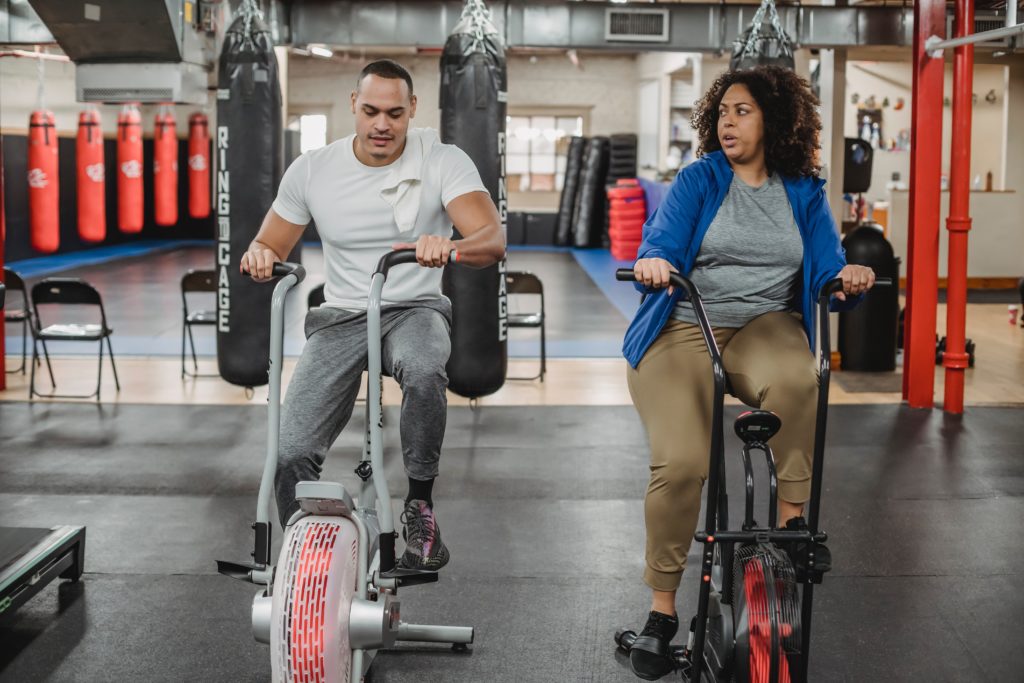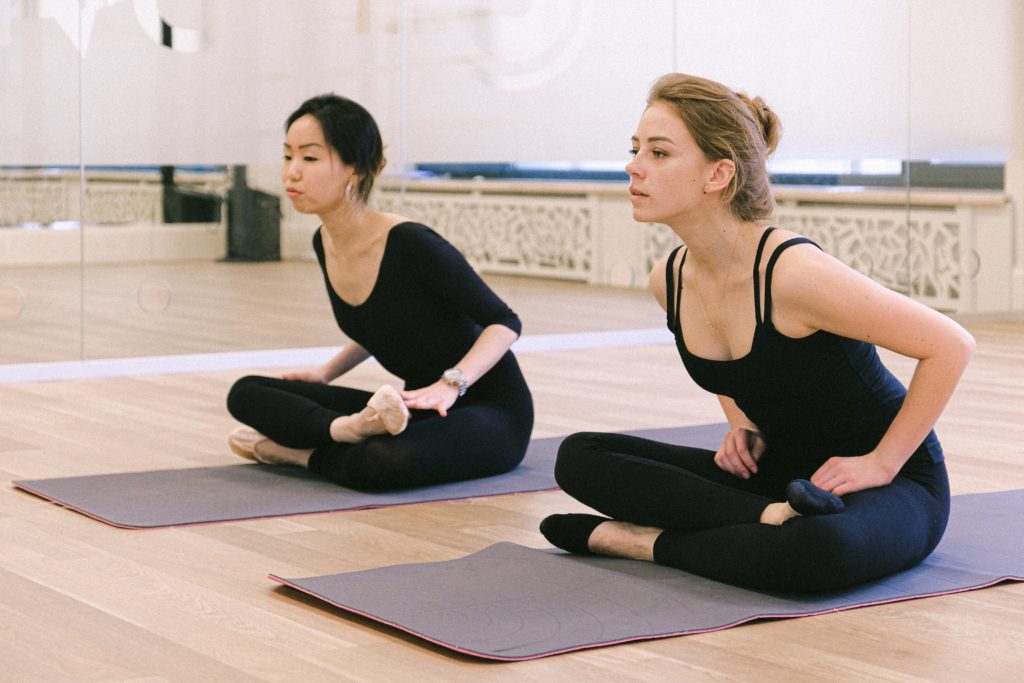The present clinical and experimental evidence overwhelmingly supports the view that Exercise & physical activity is associated to reduce stress and anxiety. By providing a mild type of stress, exercise helps to condition and fortify the adrenal glands, enabling them to manage severe stresses more effectively. Exercise seems to cause the formation of greater reserves of steroids, which are used by the body to counteract stress. In addition, regular exercise decreases the uptake of adrenaline and noradrenaline by the trained heart, making it a more efficient heart during stress.
Herbert DeVries, exercise physiologist, states that rhythmic exercise, such as walking, jogging, cycling, and bench-stepping, with a duration of 5 to 30 minutes and intensities of 30% to 60% of maximum heart rate significantly promotes relaxation in the tense individual. In addition, in a study of elderly persons with symptoms of anxiety tension, DeVries found that exercise in single doses works better than tranquilizers as a muscle relaxant.
Hans Selye, through his research on stress, demonstrated that regular physical activity can make animals less vulnerable to experimentally induced heart attacks and subsequent stress. He believes that through reasonable amounts of progressive exercise, the body develops an efficient response to stress, and the exhaustion stage is avoided. Also, the individual who exercises regularly should be better prepared to resist other stressors, and stressful experiences are not as dangerous to the physically conditioned person as they are to the sedentary one.
Studies with mentally ill patients support the role of physical activity in the release of tension, and an experimental study at Duke University resulted in the modification of Type A behaviour through a regular exercise program. Through behaviour modification, the individual can decrease his chances of getting “uptight” during a stressful event.
How Exercise Reduce Stress and Anxiety
Competitive games provide important physical and emotional outlets for natural aggressive drives. Anger, hate, and frustration, often excluded from open expression by society, can be transformed in sports participation. Through concentration on the game and on the opponent, participants in tennis, racquetball, handball and similar activities find a mental diversion that provides their worried minds with a new and different set of problems to solve problems whose solutions can be found in a short space of time.
Worry and anxiety are temporarily forgotten, and tension is released. For those individuals who prefer non-competitive physical exercise, activities such as jogging, swimming, walking, and bicycling offer the opportunity to think about things which cannot be thought about while on the job. Hopes, dreams, and aspirations may be an important part of the exercise session, as well as plans of how to cope with an anticipated stressful event.
But for a truly relaxing session, it is best to think only of pleasant things and not to allow any disturbing thoughts to linger in your mind. In fact, if you are a Type A personality and have any hopes of behaviour modification, you should approach physical activity in a non-competitive way.
Whatever program you choose to follow, regular exercise can help you manage and reduce stress and also can help you avoid stress-related diseases.

Comparison of Relaxation, Meditation, and Exercise
In a study of 75 adult men, Bahrke and Morgan compared the reduction of anxiety by three different treatments. Twenty-five men exercised for 20 minutes at 70% of their maximum; 25 practiced Benson’s Relaxation for 20 minutes; and 25 rested quietly in a “Lazy boy” chair for 20 minutes.
All three techniques were equally effective in reducing anxiety. Possibly, for the treatment of stress, the diversional aspects of these activities are just as important as any physiological changes which may take place. In other words, just “getting away from it all” may be the best prescription for coping with stress. According to the researchers, however, the anxiety reduction following exercise may be sustained for a longer period than that of the other two treatments.
How to Manage Stress?
The only way to avoid stress totally is to select an atmosphere (home, job, climate, social life, etc.) which is always in line with your preferences. Only then can you eliminate the need for constant adaptation. Of course, you realize this is impossible. Stress cannot be avoided; it always will be a part of your life. No matter what you do, where you go, or what happens to you, there will be the need to resist and adapt to changing external influences. There is no absolute freedom from stress short of death.
The key to the manage stress is to have personal control. Cannot stop the flow of paper work on your job, but you can perform to the best of you abilities and control how much you worry about the workload. You can control the progress you make toward your own life’s goals. You can find your own stress level, and you can learn to make the most out of stress, to meet its challenge.
If you are a Type A personality, try to alter your behaviour. Make stress management a part of your health program. As with the other goals in your program, this goal will take time to reach. Do not attempt to alter your behaviour too fast. Do not allow this goal to create stress


